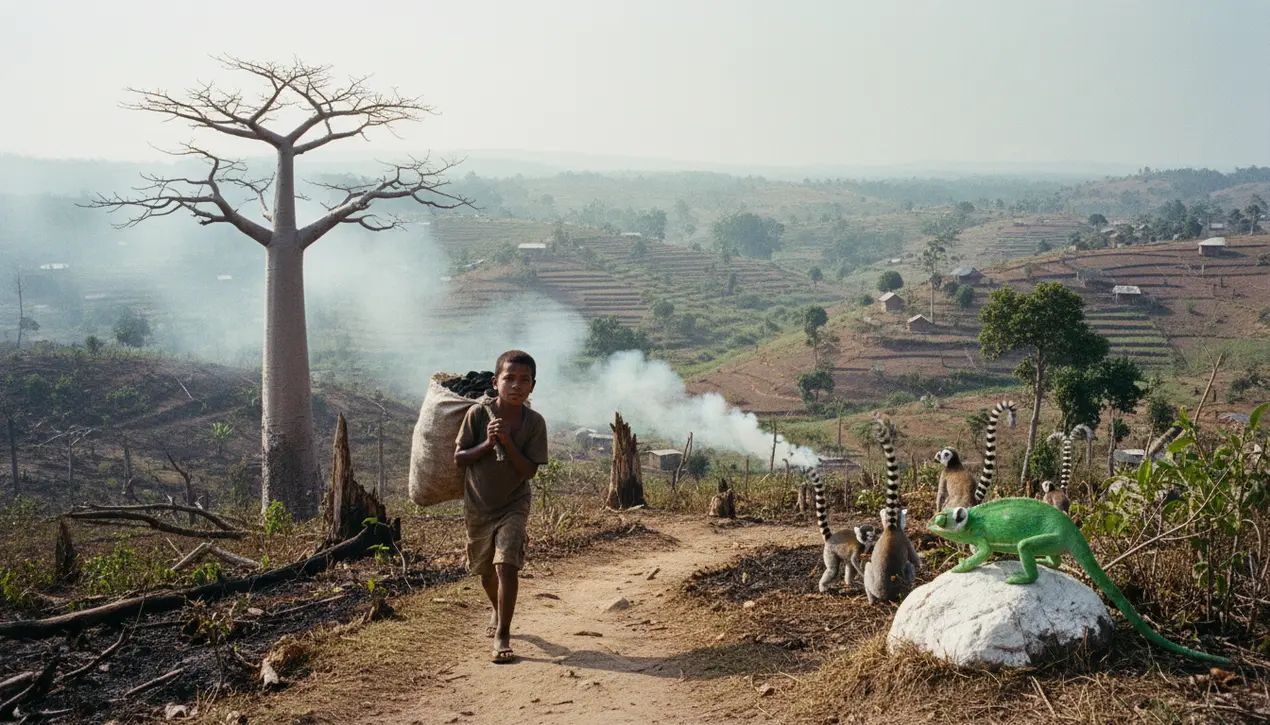
Scienceclimate scienceClimate Change
Most animals on this island nation are found nowhere else on Earth.
RA
Rachel Adams
1 hour ago7 min read
Madagascar stands as a living museum of evolution, an island so isolated for nearly 90 million years that its flora and fauna embarked on their own extraordinary evolutionary trajectories, resulting in a menagerie of creatures found nowhere else on the planet. This is the sole dominion of the lemur, a primate whose very name whispers of the ghosts of forests past, and the kingdom for nearly half the world’s chameleons, whose otherworldly forms and color-shifting skin seem plucked from fantasy.The island’s iconic baobabs, those stout, upside-down trees that dominate the landscape, are themselves mostly endemic, standing as silent, ancient sentinels. Yet this unparalleled biodiversity exists within a paradox of profound human suffering, creating a conservation crisis of almost unimaginable complexity.The island has lost approximately half of its original forests, with some estimates suggesting the figure is far higher, while its coastal coral reefs, vital marine nurseries, are in precipitous decline. The consequences are written on the Red List: nearly every lemur species is threatened with extinction, a fate shared by half of Madagascar's chameleons and several species of tenrec, those delightful hedgehog-like insectivores.This ecological unraveling is inextricably linked to a human crisis of poverty and malnutrition. With 80 percent of the population living in extreme poverty and nearly 40 percent of young children suffering from stunted growth, the environment has become the primary, and often only, source of sustenance.The cutting of forests for charcoal production and subsistence farming—activities not inherently destructive—becomes catastrophic when practiced at scale by a population with no economic alternatives. This dependency is a direct legacy of political instability, corruption, and the lingering aftershocks of colonialism, which have stifled the development of sustainable industries.Earlier this year, this fragility culminated in the government's dissolution, the president's impeachment, and the military seizing power after widespread protests over basic living conditions. Compounded by the pressures of climate change, this has created a feedback loop where ecosystems are degraded by the very people who depend on them for survival, pushing fisheries to the verge of collapse and leaving wildfires to encroach upon the last vestiges of highland forest.In this stark reality, traditional conservation models that fence off nature are not just impractical; they are unjust. The true, albeit dim, hope lies in solutions that directly intertwine human well-being with ecological health, proving that if conservation can be made to work under these most challenging of conditions, it can work anywhere.
#Madagascar
#biodiversity loss
#deforestation
#poverty
#conservation
#climate change
#featured
Stay Informed. Act Smarter.
Get weekly highlights, major headlines, and expert insights — then put your knowledge to work in our live prediction markets.
Comments
Loading comments...
© 2025 Outpoll Service LTD. All rights reserved.